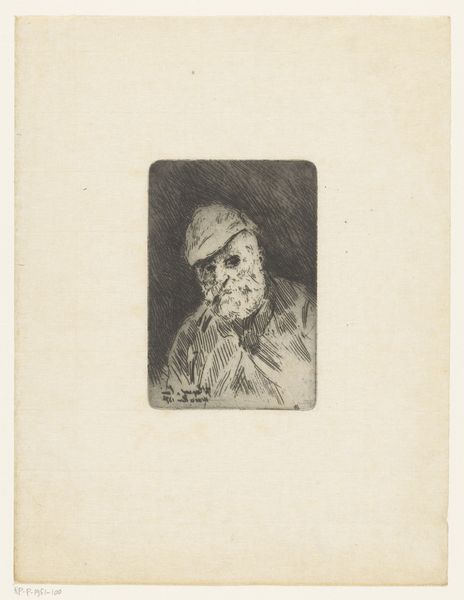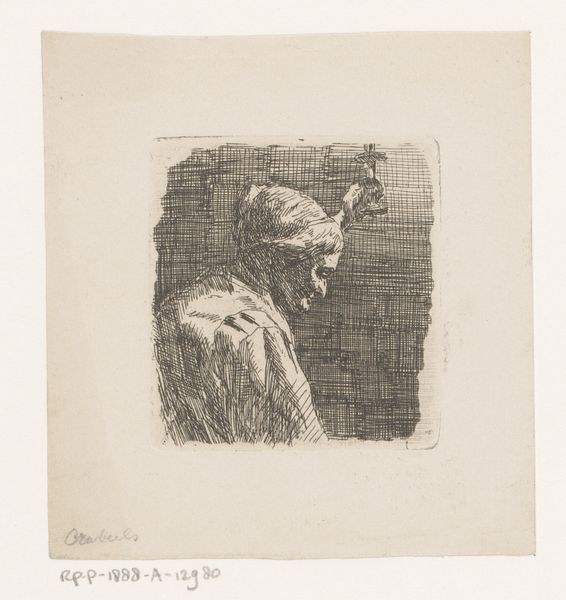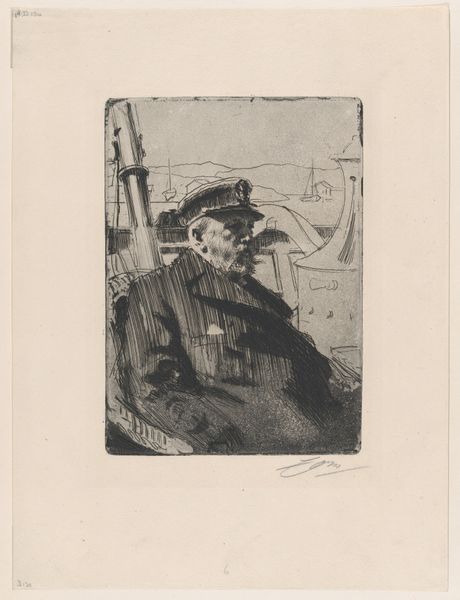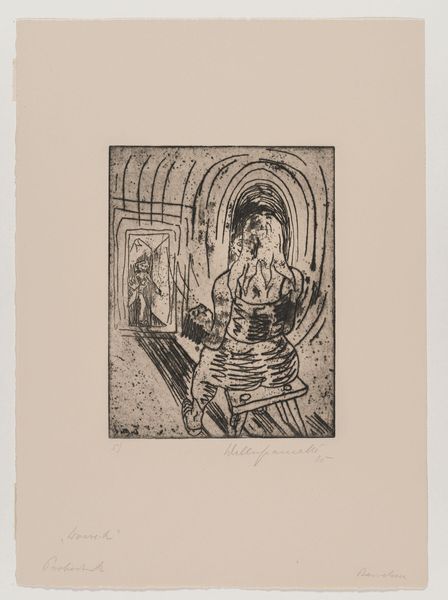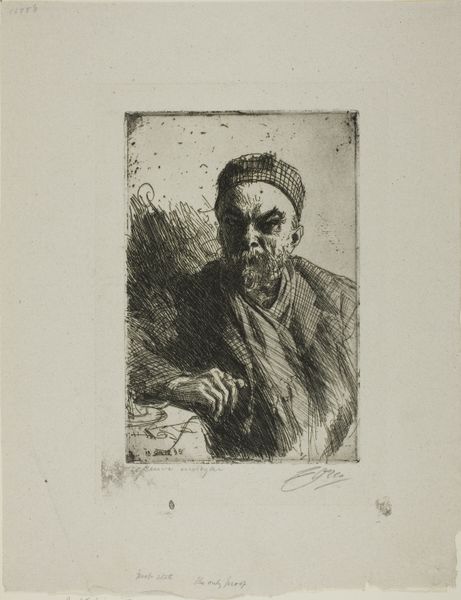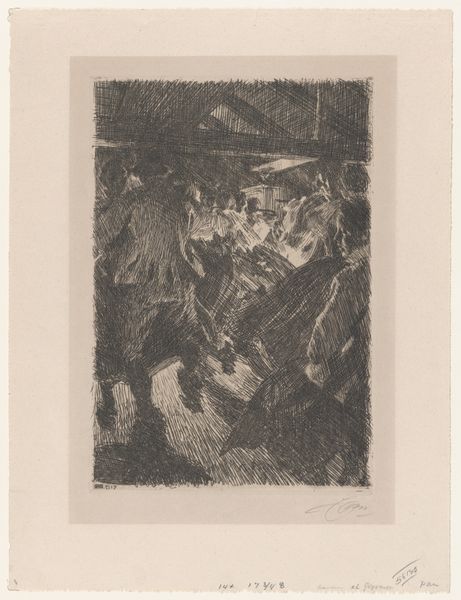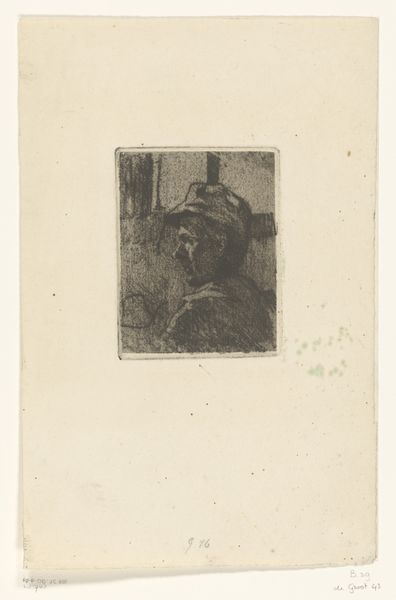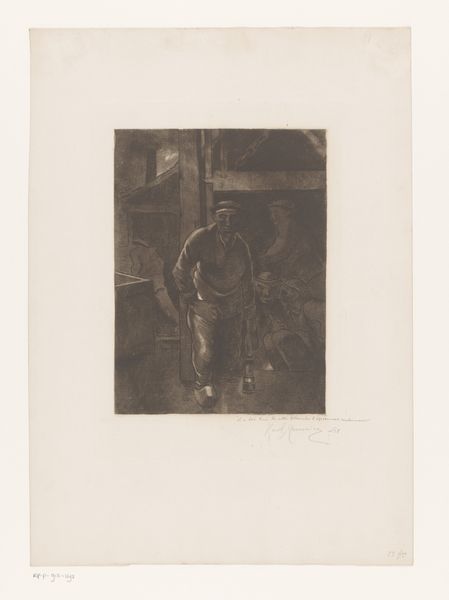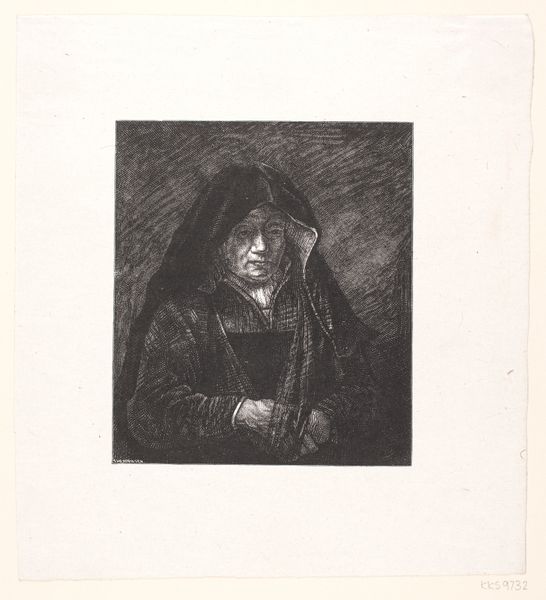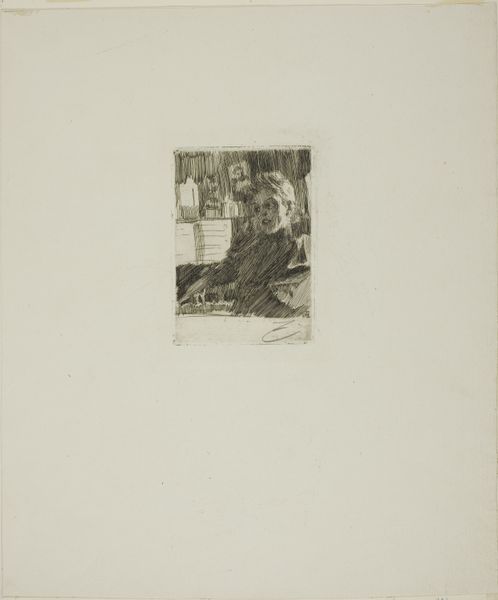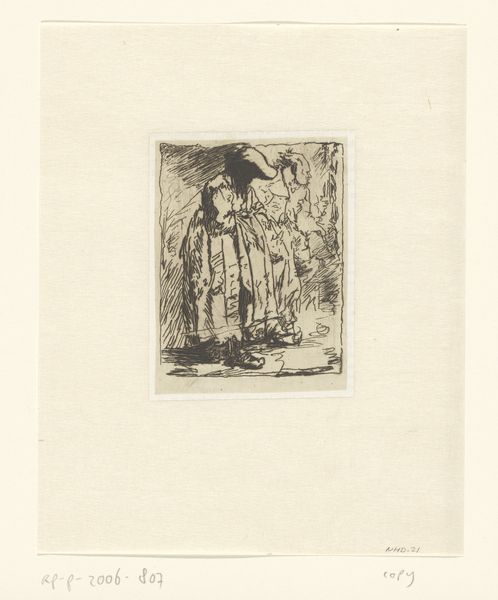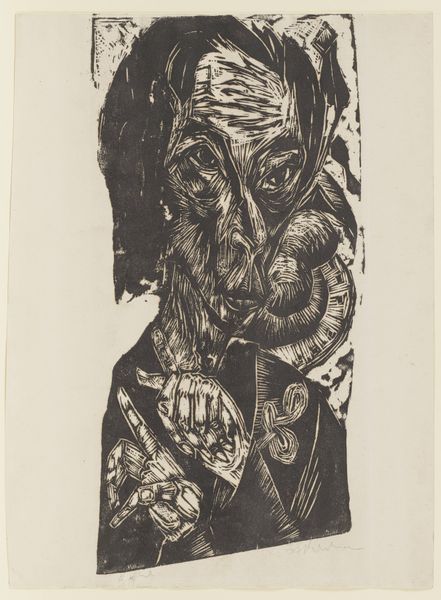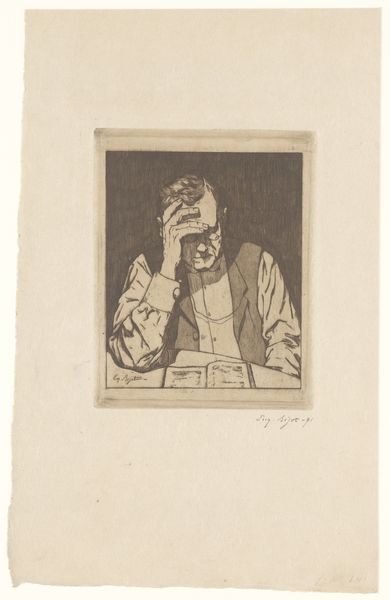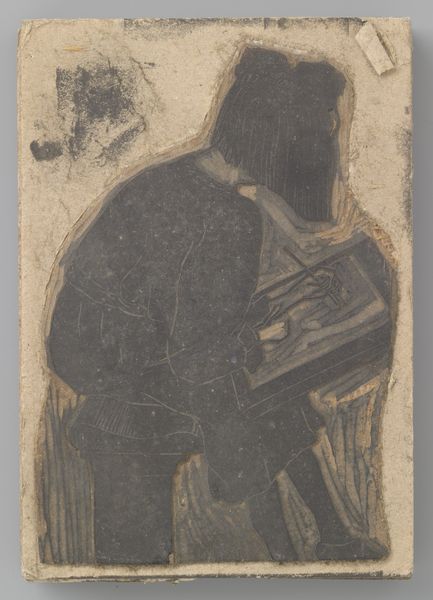
drawing, print, etching
#
portrait
#
drawing
#
water colours
# print
#
etching
#
figuration
#
men
#
watercolour illustration
Dimensions: Plate: 6 1/4 × 4 11/16 in. (15.9 × 11.9 cm) Sheet: 10 7/8 × 7 3/8 in. (27.6 × 18.8 cm)
Copyright: Public Domain
Anders Zorn made this etching, Village Violinist, sometime between the late 19th and early 20th century. The whole image is built up with these tiny, scratchy, nervous marks, aren't they great? It's like he's feeling his way through the darkness, trying to catch the light on this musician's face. The physical process is really on display here. You can see the lines of the etching, how he's dug into the plate. It makes the image feel alive, not like some slick reproduction. Take a look at the background, how it's just a mass of cross-hatching. It almost swallows the violinist up. Then notice the violinist's hands, though. They're so alive, full of energy, you can almost hear the music coming from them. Zorn was really interested in capturing everyday life, and there's a directness and honesty in his work that reminds me of Käthe Kollwitz. Both artists aren't afraid to show the grit and texture of the world, embracing the messiness of it all.
Comments
No comments
Be the first to comment and join the conversation on the ultimate creative platform.
